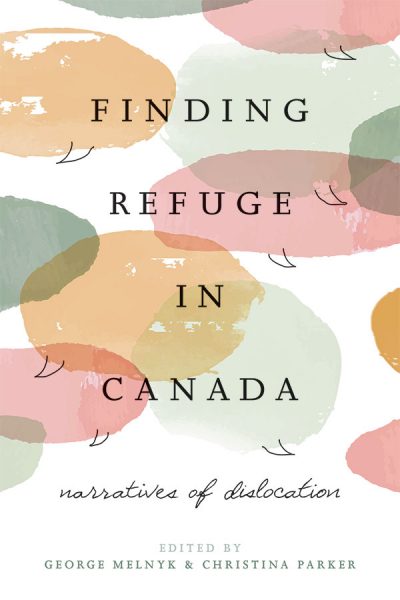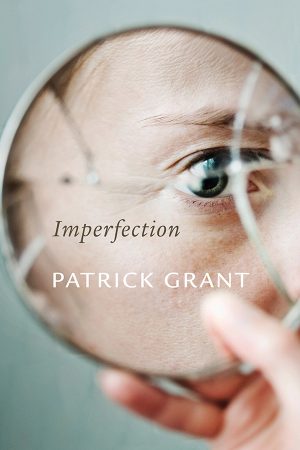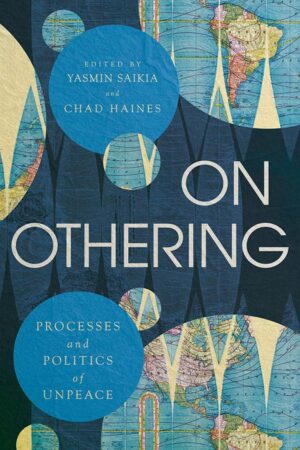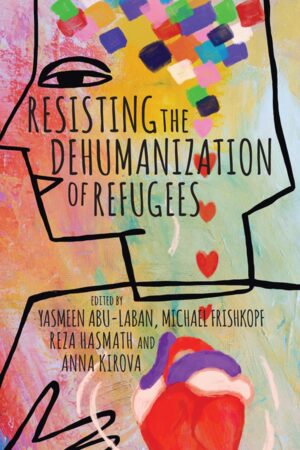- 9781771993012 (paperback)
- 9781771993029 (pdf)
- 9781771993036 (epub)
Millions of people are displaced each year by war, persecution, and famine and the global refugee population continues to grow. Canada has often been regarded as a benevolent country, welcoming refugees from around the globe. However, refugees have encountered varying kinds of reception in Canada. Finding Refuge in Canada: Narratives of Dislocation is a collection of personal narratives about the refugee experience in Canada. It includes critical perspectives from authors from diverse backgrounds, including refugees, advocates, front-line workers, private sponsors, and civil servants.
The narratives collected here confront dominant public discourse about refugee identities and histories and provide deep insight into the social, political, and cultural challenges and opportunities that refugees experience in Canada. Contributors consider Canada’s response to various groups of refugees and how Canadian perspectives on war, conflict, and peace are constructed through the refugee support experience. These individual stories humanize the global refugee crisis and challenge readers to reflect on the transformative potential of more equitable policies and processes.
Reviews
The heart of this book is the personal stories of how some people became refugees and how some refugees became social activists for the cause of refugees. [. . .] Each chapter is an exquisite depiction in an authentic voice of the human side of what being a refugee means. [. . .] This is one of the most important books this reviewer has read on what being a refugee means personally, socially, and politically.
—K. E. Murphy, formerly, Northwestern University (from CHOICE, choicereviews.org, American Library Association)
Such stirring personal stories read like conversations with new friends. At the same time, the kaleidoscope of perspectives from refugees, volunteers and advocates draws a nearly complete picture. The blend of policy with intimacy makes this book well suited for high school or university curriculums. After all, the new generation of Canadians is well placed to take leadership roles amidst a growing global refugee crisis. As this book shows, they have tall shoulders to stand upon.
—Agnieszka Matejko, Alberta Views
While Canada has welcomed a variety of displaced people, its immigration policy has not always been humane. Anyone interested in knowing more about this country’s refugee policy and how it works out in real life will want to read this book.
—Barb Draper, Canadian Mennonite
A call to action for those in positions of privilege and power to learn and understand the nuances and complexities involved in a process that has life and death consequences. I would recommend this book to settlement workers, private sponsors, advocacy groups, students, and those interested in learning more about Canada’s refugee determination system and Canada’s varied responses to refugees throughout recent history.
—Deborah Mebude, Citizens for Public Justice
[Finding Refuge in Canada] is an excellent reader for a wide audience interested in informing themselves more about Canada and its role in accommodating refugees. It should be used widely in schools and universities to counter the persistent prejudices against refugees. It is also a reminder that integration is difficult at the best of times and that Canadians have an important role to play in welcoming newcomers to their society.
—Erich P. Schellhammer, Peace Research: The Canadian Journal of Peace and Conflict Studies
A timely publication that calls to action those in positions of power and privilege to understand the nuances and intricacies involved in a process that has life-and-death consequences. Finding Refuge in Canada is informative, compelling, and apt for all readers: academics, advocates, policymakers, and service providers alike.
—Gemechu Abeshu, Great Plains Research
Table of Contents
- Acknowledgements
- Refugees and Canada: Contemporary Issues and Real Stories / George Melnyk and Christina Parker
- Part One Coming to Canada
- 1. Once a Refugee, Always a Refugee / George Melnyk
- 2. The Best Place on Earth / Victor Porter
- 3. From Scars to Stars / Flora Terah
- 4. Fleeing The Gambia / Matida Daffeh
- 5. From LGBTQ+ Activist to Refugee / Boban Stojanović
- Part Two Canada Responds
- 6. The Ugandan Asian Expulsion, 1972: A Personal Memoir / Michael Molloy
- 7. Reflecting on the Role of the Mennonite Central Committee in Advocating for Refugees / William Janzen
- 8. Operation Lifeline / Howard Adelman
- 9. Sponsoring a Syrian Refugee Family / Katharine Lake Berz and Julia Holland
- 10. Finding Welcome off the Refugee Highway / Shelley Campagnola
- 11. My Experience as a Refugee and Settlement Worker / Eusebio Garcia
- Part Three The Struggle for Inclusion
- 12. From Chilean Refugee to Canadian Citizen / Pablo Policzer, with an illustrated account by Adam Policzer and Irene Policzer
- 13. Floating to the Lure of the Promised Land: Tamil Refugees in Canada / Cyrus Sundar Singh
- 14. Refugee Children in Canadian Schools: The Role of Teachers in Supporting Integration and Inclusion / Christina Parker
- What We Know, What We Hope: An Afterword / George Melnyk and Christina Parker
This work is licensed under a Creative Commons License (CC BY-NC-ND 4.0). It may be reproduced for non-commercial purposes, provided that the original author is credited.

![[book cover] The ABCs of Human Survival](https://www.aupress.ca/app/uploads/120173_The-ABCs-of-Human-Survival-cover-275x450.jpg)


